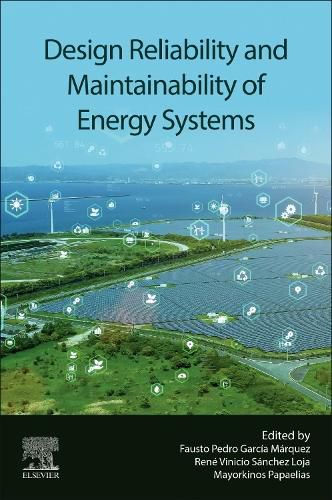Readings Newsletter
Become a Readings Member to make your shopping experience even easier.
Sign in or sign up for free!
You’re not far away from qualifying for FREE standard shipping within Australia
You’ve qualified for FREE standard shipping within Australia
The cart is loading…






Designing reliable and maintainable energy systems is crucial for ensuring efficiency, longevity, and sustainability in energy production, distribution, and consumption. Reliability focuses on minimizing failures and ensuring continuous operation under varying conditions, while maintainability emphasizes ease of inspection, repair, and upgrades. A well-designed energy system integrates robust components, predictive maintenance strategies, and advanced monitoring technologies to reduce downtime and operational costs. By prioritizing both reliability and maintainability, engineers can develop resilient energy infrastructures that support modern demands while minimizing environmental impact and lifecycle costs.
Designing Reliability and Maintainability of Energy Systems is a guide to enhancing the resilience and reliability of modern energy infrastructures. Chapters present fundamental principles of reliability and resilience and new artificial intelligence applications, such as predictive maintenance, advanced analytics, and digital twin technologies for improved efficiency and sustainability in energy systems. Clear chapter objectives, worked problems, and case studies are included to demonstrate real-world applications of these technologies.
This book is valuable for researchers, industry professionals, engineers, and advanced undergraduate and graduate students focused on energy grids, power system reliability, and AI-driven solutions for sustainable infrastructure.
$9.00 standard shipping within Australia
FREE standard shipping within Australia for orders over $100.00
Express & International shipping calculated at checkout
Stock availability can be subject to change without notice. We recommend calling the shop or contacting our online team to check availability of low stock items. Please see our Shopping Online page for more details.
Designing reliable and maintainable energy systems is crucial for ensuring efficiency, longevity, and sustainability in energy production, distribution, and consumption. Reliability focuses on minimizing failures and ensuring continuous operation under varying conditions, while maintainability emphasizes ease of inspection, repair, and upgrades. A well-designed energy system integrates robust components, predictive maintenance strategies, and advanced monitoring technologies to reduce downtime and operational costs. By prioritizing both reliability and maintainability, engineers can develop resilient energy infrastructures that support modern demands while minimizing environmental impact and lifecycle costs.
Designing Reliability and Maintainability of Energy Systems is a guide to enhancing the resilience and reliability of modern energy infrastructures. Chapters present fundamental principles of reliability and resilience and new artificial intelligence applications, such as predictive maintenance, advanced analytics, and digital twin technologies for improved efficiency and sustainability in energy systems. Clear chapter objectives, worked problems, and case studies are included to demonstrate real-world applications of these technologies.
This book is valuable for researchers, industry professionals, engineers, and advanced undergraduate and graduate students focused on energy grids, power system reliability, and AI-driven solutions for sustainable infrastructure.